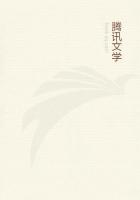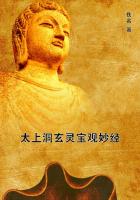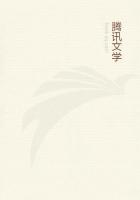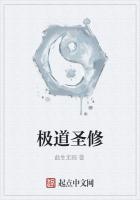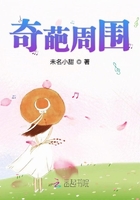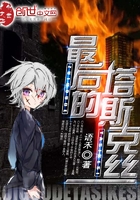THE TOWN-SPARROW.
"This, too, will pass," is a Persian word: I should like it better if it were "This, too, shall pass."Gibbie's agony passed, for God is not the God of the dead but of the living. Through the immortal essence in him, life became again life, and he ran about the streets as before. Some may think that wee Sir Gibbie--as many now called him, some knowing the truth, and others in kindly mockery--would get on all the better for the loss of such a father; but it was not so. In his father he had lost his Paradise, and was now a creature expelled. He was not so much to be pitied as many a child dismissed by sudden decree from a home to a school; but the streets and the people and the shops, the horses and the dogs, even the penny-loaves though he was hungry, had lost half their precious delight, when his father was no longer in the accessible background, the heart of the blissful city. As to food and clothing, he did neither much better nor any worse than before:
people were kind as usual, and kindness was to Gibbie the very milk of mother Nature. Whose the hand that proffered it, or what the form it took, he cared no more than a stray kitten cares whether the milk set down to it be in a blue saucer or a white. But he always made the right return. The first thing a kindness deserves is acceptance, the next is transmission: Gibbie gave both, without thinking much about either. For he never had taken, and indeed never learned to take, a thought about what he should eat or what he should drink, or wherewithal he should be clothed--a fault rendering him, in the eyes of the economist of this world, utterly unworthy of a place in it. There is a world, however, and one pretty closely mixed up with this, though it never shows itself to one who has no place in it, the birds of whose air have neither storehouse nor barn, but are just such thoughtless cherubs--thoughtless for themselves, that is--as wee Sir Gibbie. It would be useless to attempt convincing the mere economist that this great city was a little better, a little happier, a little merrier, for the presence in it of the child, because he would not, even if convinced of the fact, recognize the gain; but I venture the assertion to him, that the conduct of not one of its inhabitants was the worse for the example of Gibbie's apparent idleness; and that not one of the poor women who now and then presented the small baronet with a penny, or a bit of bread, or a scrap of meat, or a pair of old trousers--shoes nobody gave him, and he neither desired nor needed any--ever felt the poorer for the gift, or complained that she should be so taxed.
Positively or negatively, then, everybody was good to him, and Gibbie felt it; but what could make up for the loss of his Paradise, the bosom of a father? Drunken father as he was, I know of nothing that can or ought to make up for such a loss, except that which can restore it--the bosom of the Father of fathers.
He roamed the streets, as all his life before, the whole of the day, and part of the night; he took what was given him, and picked up what he found. There were some who would gladly have brought him within the bounds of an ordered life; he soon drove them to despair, however, for the streets had been his nursery, and nothing could keep him out of them. But the sparrow and the rook are just as respectable in reality, though not in the eyes of the hen-wife, as the egg-laying fowl, or the dirt-gobbling duck; and, however Gibbie's habits might shock the ladies of Mr. Sclater's congregation who sought to civilize him, the boy was no more about mischief in the streets at midnight, than they were in their beds. They collected enough for his behoof to board him for a year with an old woman who kept a school, and they did get him to sleep one night in her house. But in the morning, when she would not let him run out, brought him into the school-room, her kitchen, and began to teach him to write, Gibbie failed to see the good of it. He must have space, change, adventure, air, or life was not worth the name to him. Above all he must see friendly faces, and that of the old dame was not such. But he desired to be friendly with her, and once, as she leaned over him, put up his hand--not a very clean one, I am bound to give her the advantage of my confessing--to stroke her cheek: she pushed him roughly away, rose in indignation upon her crutch, and lifted her cane to chastise him for the insult. A class of urchins, to Gibbie's eyes at least looking unhappy, were at the moment blundering through the twenty-third psalm. Ever after, even when now Sir Gilbert more than understood the great song, the words, "thy rod and thy staff," like the spell of a necromancer would still call up the figure of the dame irate, in her horn spectacles and her black-ribboned cap, leaning with one arm on her crutch, and with the other uplifting what was with her no mere symbol of authority. Like a shell from a mortar, he departed from the house. She hobbled to the door after him, but his diminutive figure many yards away, his little bare legs misty with swiftness as he ran, was the last she ever saw of him, and her pupils had a bad time of it the rest of the day. He never even entered the street again in which she lived.
Thus, after one night's brief interval of respectability, he was again a rover of the city, a flitting insect that lighted here and there, and spread wings of departure the moment a fresh desire awoke.
It would be difficult to say where he slept. In summer anywhere; in winter where he could find warmth. Like animals better clad than he, yet like him able to endure cold, he revelled in mere heat when he could come by it. Sometimes he stood at the back of a baker's oven, for he knew all the haunts of heat about the city; sometimes he buried himself in the sids (husks of oats) lying ready to feed the kiln of a meal-mill; sometimes he lay by the furnace of the steam-engine of the water-works. One man employed there, when his time was at night, always made a bed for Gibbie: he had lost his own only child, and this one of nobody's was a comfort to him.

